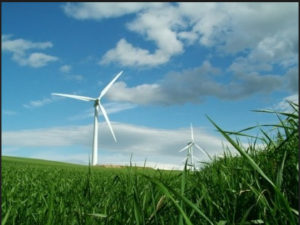A decarbonised power system, or grid, is one that relies on renewable energy sources, especially wind, solar, water, and, for some, nuclear, to generate electricity, instead of fossil or carbon-based fuels. Decarbonising the power system is the process of shifting from fossil fuels to renewables, what in almost all circumstances is a gradual process. To measure this process in transition, we often speak of reducing the carbon intensity of the power, which is to reduce the greenhouse gas (GHG) emissions per unit of electricity generated. Switching to lower-carbon fuels, like natural gas, in contrast to higher-carbon coal is considered by some as a form of decarbonising.


Some consider the capping of GHG emissions through carbon capture and storage as an alternative to relying on renewable energy sources.
In addition to switching to non-carbon fuel sources of energy, and to accommodate the fluctuation that goes with these sources, it is necessary to upgrade the infrastructure for power systems, including transmission and distribution facilities connected to a smart grid.
Some further ideas to explore on Decarbonised Power:
Determine the nearest electricity generating power plant near your home.
Determine the source of fuels that feed the power plant.
Are there any renewable sources of power in your area, e.g., wind or solar or water?
Can any of the fossil fuels that generate power at this plant be replaced by solar or wind power?
Sources:
What is “decarbonisation” of the power sector? Why do we need to decarbonise the power sector in the UK? London School of Economics/Grantham Research Institute on Climate change and the environment (24 march 2014). bit.ly/2I1DAh6
Eurelectric, Europe’s power sector can decarbonise by 2045: Decarbonisation Pathways bit.ly/2UaZIrK
Ashley Lawson, “Decarbonizing U.S. Power,” Center for Climate and Energy Solutions (July 2018). bit.ly/2UdoI1F
James Blackman, “The way to decarbonised, decentralised power: What is a smart grid anyway?”, enterprise iot insights (26 June 2019). bit.ly/2L2Zcct


No comments yet, add your own below